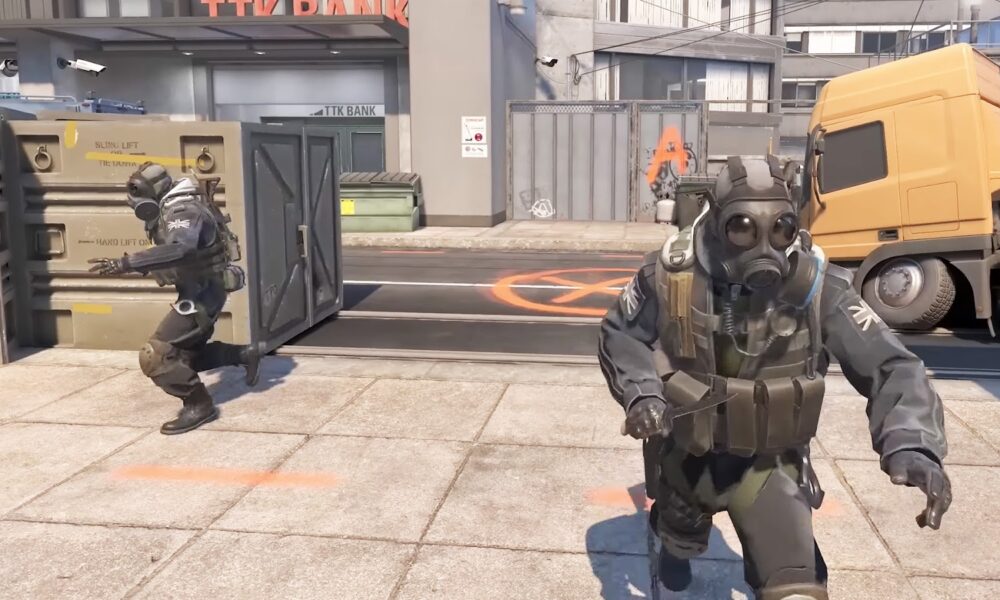CS2 Faceit Cheats: The Hidden Threat in Competitive Matches

Cheating in online games isn’t new, but in the case of CS2 on Faceit, it has reached a point where it’s threatening the integrity of the competitive scene. Faceit is known for offering a higher level of matchmaking for serious players who want to avoid the pitfalls of public matches. Unfortunately, as the skill level rises, so does the incentive to cheat.
For players grinding through the Faceit ranks, the presence of cheaters isn’t just frustrating—it’s demoralizing. When someone’s putting in hours to improve their game, only to get matched against players with unfair advantages, it kills motivation. Worse, it warps the experience, making genuine skill harder to recognize or trust.
Why Faceit is a Prime Target for Cheaters
Faceit cheats is marketed as a platform for serious competitors. It’s where people go when they want more structure, better servers, and—most importantly—a cleaner experience. But that also makes it a prime target for cheaters. Why? Because the higher you climb in Faceit rankings, the more prestige and visibility you get.
Players at the top aren’t just playing for fun. Many are chasing recognition, tournament invites, or even pro careers. That pressure can drive people to look for shortcuts. And in some cases, those shortcuts come in the form of cheats: wallhacks, aimbots, radar hacks, and more.
Unlike casual matches where cheating might be obvious or sloppy, cheats on Faceit are often more subtle. Aimbots are tuned to look human. Wallhacks are used strategically rather than constantly. This makes detection much harder, both for opponents and anti-cheat systems.
How Cheats Slip Past Anti-Cheat Systems
Faceit has its own anti-cheat software, and it’s better than what you get in standard CS2 matchmaking. But it’s not foolproof. Cheaters adapt faster than systems update. Many modern cheats are built with one goal: avoid detection. And some are good enough to do exactly that.
Advanced cheats now use kernel-level drivers, which allow them to run at a lower level in the operating system, hiding from surface-level scans. Some go further, injecting code in ways that mimic normal player behavior to avoid triggering automated bans. Others rely on hardware-based solutions that are almost impossible to trace with software alone.
Even with manual reports, the review process takes time. And even then, some cheaters are so subtle that their actions can be passed off as lucky plays or good game sense. This creates a gray area where suspicion exists, but proof is hard to come by.
The Psychology of Competitive Cheating
Part of what makes this issue so dangerous is the mindset it breeds. When players feel like cheating is common or easy to get away with, some justify using cheats themselves just to “level the playing field.” That creates a downward spiral. Trust erodes. Respect for opponents fades. And the competitive integrity that Faceit promises begins to crack.
For players who don’t cheat, the mental toll is heavy. It’s not just the loss of matches—it’s the doubt. You start questioning every flick shot, every lucky pre-fire, every suspicious rotation. That paranoia can bleed into your performance, making you second-guess yourself, play more passively, and stop enjoying the game.
The Impact on the Scene
The ripple effects of unchecked cheating are wide. Content creators find their highlight clips questioned. Rising stars have their legitimacy doubted. Teams become hesitant to pick up new talent without exhaustive background checks. And fans, the lifeblood of any competitive scene, grow cynical and disengaged.
When fair competition is in doubt, the entire scene suffers. Sponsors pull back. Tournaments lose credibility. And legitimate players are forced to compete not only against each other but against the threat of invisible advantages.
How Some Players Try to Fight Back
While Faceit works to improve detection, many in the community have taken matters into their own hands. Demo reviews, third-party analysis tools, and even private Discord groups exist solely to flag suspicious behavior. But these solutions are stopgaps. They rely on community effort, take time, and often lack real enforcement power.
Some high-level players have even begun streaming less or hiding their in-game identities to avoid being targeted by cheaters. This defensive posture shows just how far things have fallen. The fact that legitimate players feel the need to hide is a sign that the system isn’t holding up.
What Needs to Change
Fixing this won’t be easy, but a few key areas stand out.
Stronger, Smarter Anti-Cheat
Anti-cheat systems need to evolve faster than the cheats. That means more investment in machine learning detection, more aggressive hardware bans, and better real-time monitoring tools. It’s not just about catching cheaters after the fact—it’s about minimizing the time they can operate undetected.
Transparency and Feedback
Faceit could improve trust by being more transparent. When bans happen, players want to know why. A simple message saying someone was banned “for cheating” isn’t enough anymore. Clear, detailed feedback—where possible—would help restore confidence in the system.
Community Involvement
There’s a strong community on Faceit cheats that genuinely cares about competitive integrity. Giving them more tools to flag, report, and analyze suspicious behavior would be a step in the right direction. When players feel like their voice matters, they stay engaged and motivated to help.
Cultural Shift
The biggest challenge is cultural. Right now, in some circles, cheating is seen as a joke, or even a flex. That needs to change. Competitive games thrive when honor and skill are respected. Promoting stories of legit success, calling out cheaters, and rewarding clean players are small steps, but they can shift the tone over time.
The Bottom Line
Cheating in CS2 on Faceit is a real problem. It’s not just annoying—it’s a threat to the whole structure of competitive play. When players can’t trust the match they’re in, everything starts to break down.
Fixing this will take effort from all sides: developers, players, and the broader community. But the first step is awareness. Pretending the issue isn’t there or brushing it off as rare won’t help. It’s time to face the hidden threat head-on, before it turns the game into something no longer worth competing in.

Source: CS2 Faceit Cheats: The Hidden Threat in Competitive Matches




